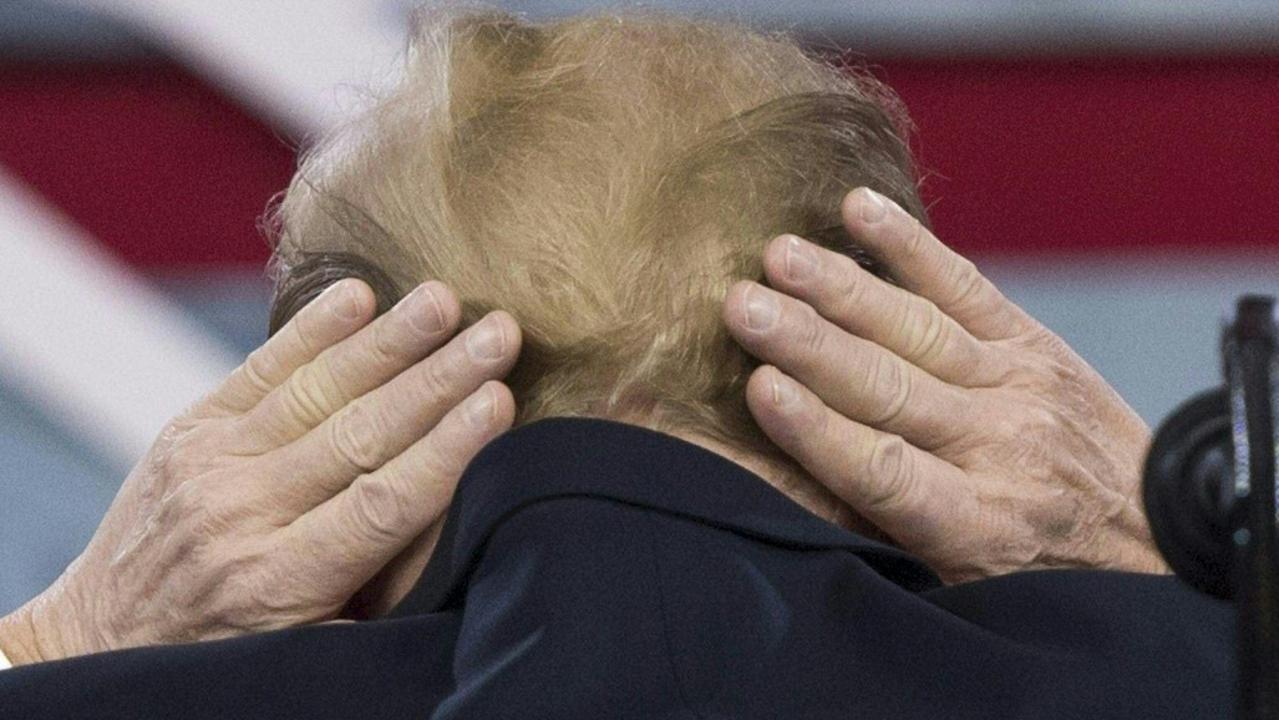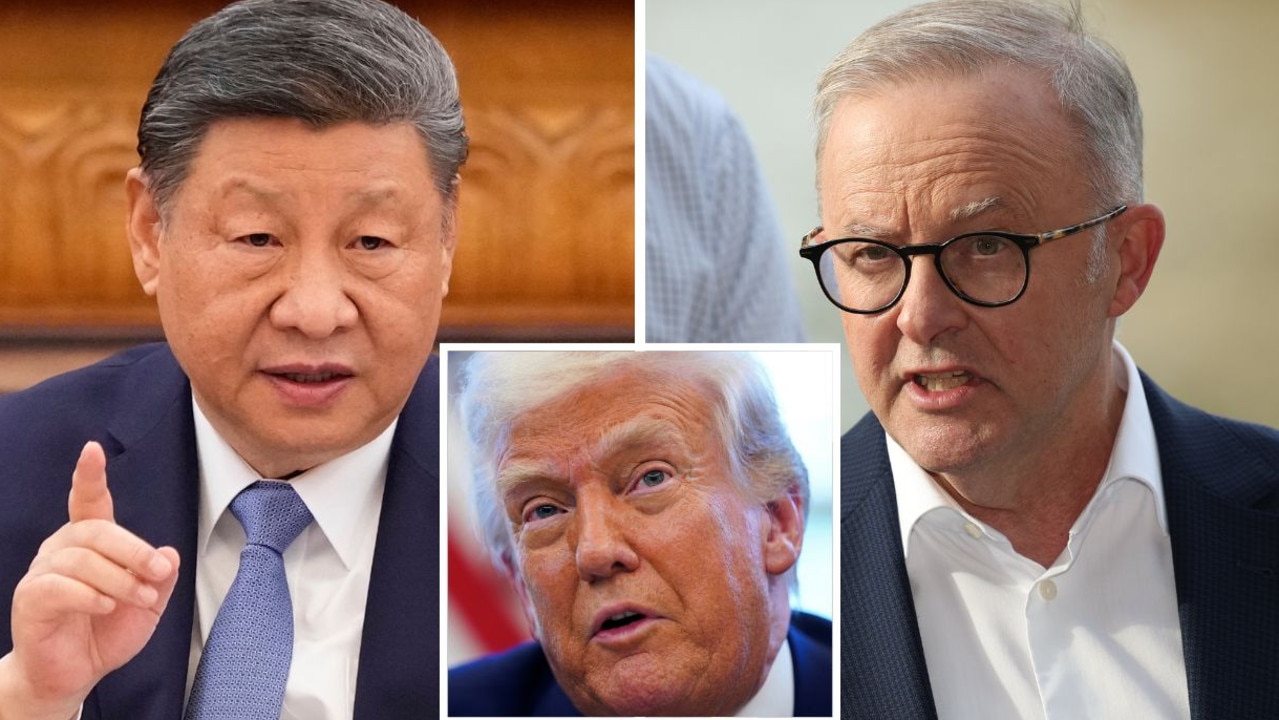‘That was fast’: Resumed talks for minerals deal between US and Ukraine framed as a concession by Volodymyr Zelensky
As Ukraine’s President tries to rescue his country’s imperilled relationship with the United States, some in Donald Trump’s circle are gloating.
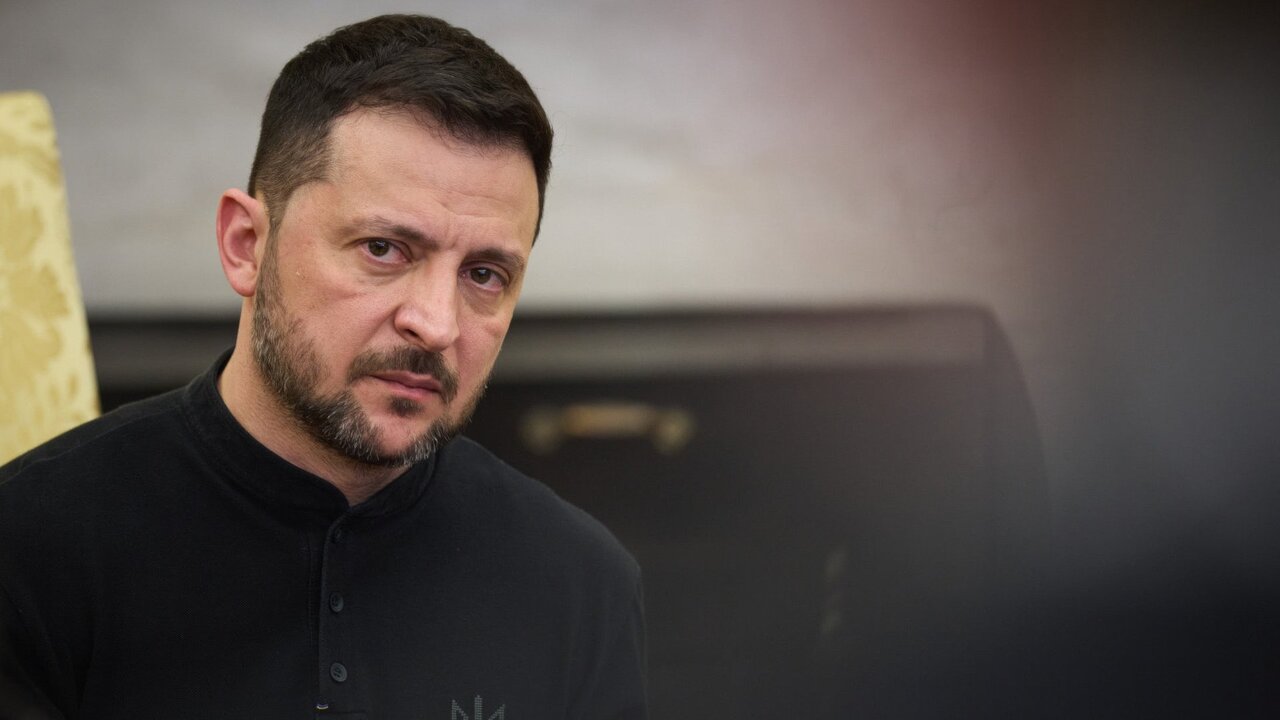
The United States and Ukraine appear to be moving, once again, to sign the minerals deal which was derailed by that ignominious row at the White House late last week.
The deal, which involves Ukraine giving away the rights to a large chunk of its mineral wealth as, essentially, a thank you payment for America’s aid in repelling Russia’s invasion, was supposed to be signed on Friday.
But that plan was ditched after the ugly argument in the Oval Office.
In front of the cameras, Ukrainian President Volodymyr Zelensky questioned the trustworthiness of Russian dictator Vladimir Putin. Both US President Donald Trump and his Vice President J.D. Vance reacted by browbeating him.
Mr Zelensky’s point – that Putin has a record of breaking agreements – was an implicit criticism of Mr Trump, who has said repeatedly in recent weeks that he trusts the Russian President to honour any peace deal he strikes.
After the Oval Office row, White House officials asked the Ukrainian delegation to leave. Mr Zelensky returned to Europe without the minerals deal being finalised.
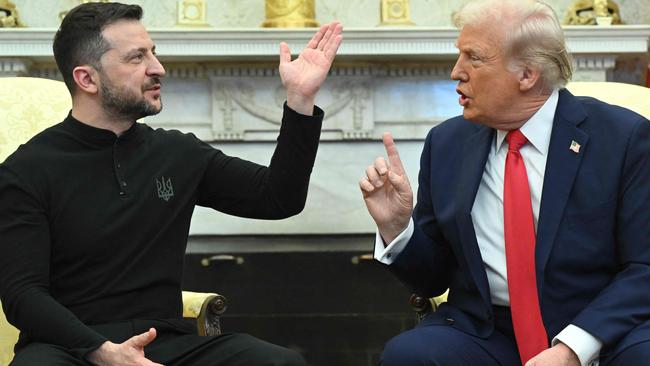
There are currently conflicting reports, in the American and global media, about the exact status of the deal.
According to some of those reports, the Trump administration has been rushing to get it done in time for the President’s speech to a joint sitting of Congress later today, which would allow him to announce it as a nice applause line.
(That speech, a State of the Union address in all but name, is at 1pm AEDT. You can follow our live coverage at this link.)
Other reports indicate there are details of the deal yet to be settled, and Mr Trump is pushing for more favourable terms from Ukraine.
“There’s been no movement on this yet,” Fox News correspondent Jacqui Heinrich reported, citing anonymous sources in the White House.
Publicly, Trump administration officials have indicated they are eager to finalise the agreement. But doing so would not necessarily lead to Mr Trump resuming American aid to Ukraine, having paused it entirely a day ago.
“I think the President is still committed to the mineral deal,” Mr Vance told reporters.
“The mineral deal is a really important part of the president’s policy.”
Of the aid, though, Mr Vance said: “When the Ukrainians come to the negotiating table, everything is on the table.”
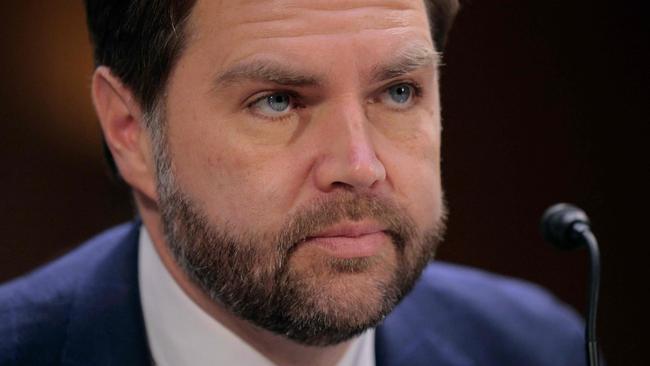
Zelensky expresses ‘regret’ for Oval Office row
In a lengthy statement today, clearly aimed at mollifying Mr Trump, Ukraine’s President said the argument in the Oval Office was “regrettable”.
He said he was still willing to sign the minerals deal.
“I would like to reiterate Ukraine’s commitment to peace,” Mr Zelensky said.
“None of us wants an endless war. Ukraine is ready to come to the negotiating table as soon as possible to bring lasting peace closer. Nobody wants peace more than Ukrainians. My team and I stand ready to work under President Trump’s strong leadership to get a peace that lasts.
“We are ready to work fast to end the war, and the first stages could be the release of prisoners and truce in the sky – ban on missiles, long-ranged drones, bombs on energy and other civilian infrastructure – and truce in the sea immediately, if Russia will do the same. “Then we want to move very fast through all next stages and to work with the US to agree a strong final deal.
“We do really value how much America has done to help Ukraine maintain its sovereignty and independence. And we remember the moment when things changed when President Trump provided Ukraine with Javelins (a type of missile). We are grateful for this.
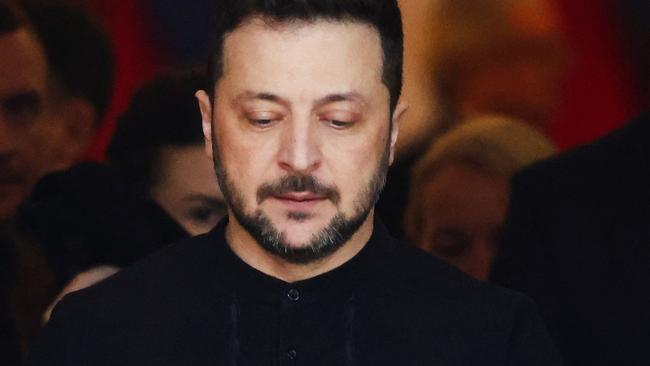
“Our meeting in Washington, at the White House on Friday, did not go the way it was supposed to be. It is regrettable that it happened this way. It is time to make things right. We would like future co-operation and communication to be constructive.
“Regarding the agreement on minerals and security, Ukraine is ready to sign it in any time and in any convenient format. We see this agreement as a step toward greater security and solid security guarantees, and I truly hope it will work effectively.”
Analysis: Five steps back, one step forward
This is being framed, by those in Mr Trump’s orbit, as a major concession by Mr Zelensky and an unambiguous victory for the US President.
“That was fast,” said Senator Mike Lee, sharing an image on social media mocking critics of Mr Trump’s diplomatic style.
“Trump wants a foreign leader to do something. Trump suggests something unorthodox and hyperbolic. The Left claims Trump is fascist, stupid, and that his plan will not work. Leader caves and Trump gets concessions,” the meme read.
“Strong men make good times,” agreed billionaire Elon Musk.
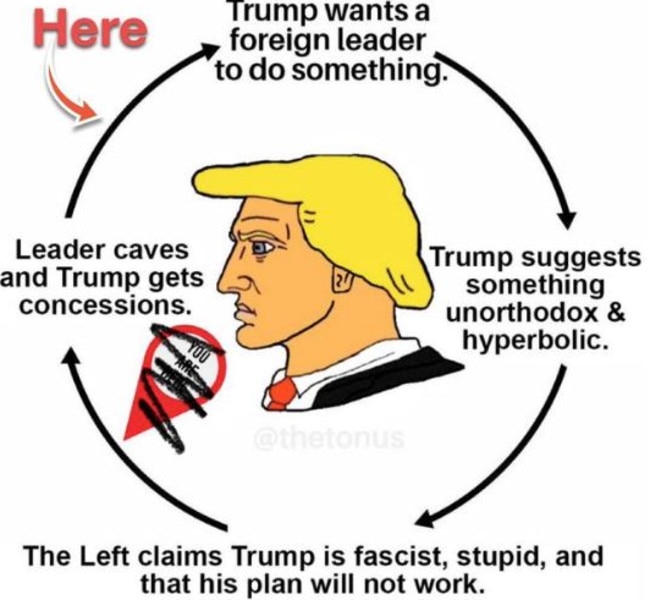
It’s not quite so simple, at least not in this case.
Consider: what concessions has Mr Trump actually secured?
Ukraine was already willing to sign the minerals deal last week. Even when Mr Zelensky was told to leave the White House, no one believed it was permanently dead.
What else is there? Mr Zelensky’s statement mentions possible first steps, on the pathway towards a peace deal, that Ukraine would already have been willing to accept – and which, significantly, would require Russia to take reciprocal action.
An end to the bombing of “energy and other civilian infrastructure”, for example, refers to Russia’s ongoing bombardment of Ukraine’s civilian population and its efforts to cut off the country’s power.
This is not a concession to Mr Trump, who has yet to apply any pressure, on Putin, to stop that violence. It’s a demand. You want peace talks? Get Russia to stop killing my civilians, then we can consider the next steps.
On top of that, and probably most significantly, Mr Zelensky has not moved at all on the key sticking points that triggered Mr Trump and Mr Vance’s displeasure, either in the Oval Office meeting itself or in the fortnight that preceded it.
Those are: first, Ukraine’s demand that it be present for negotiations with Russia, having been excluded from an initial meeting between American and Russian officials in Saudi Arabia; and second, its demand that any peace deal include security guarantees. In other words, a concrete commitment that if Putin breaks his word and attacks Ukraine again, the West will step in.
Mr Trump and Mr Vance are particularly resistant to the idea of such a guarantee; it was the underlying issue that ignited the Oval Office row.
So what has Mr Trump actually gained? A few token, obsequious words about his “strong leadership”. And renewed negotiations for a minerals deal that should have been finalised last week. That’s about it.
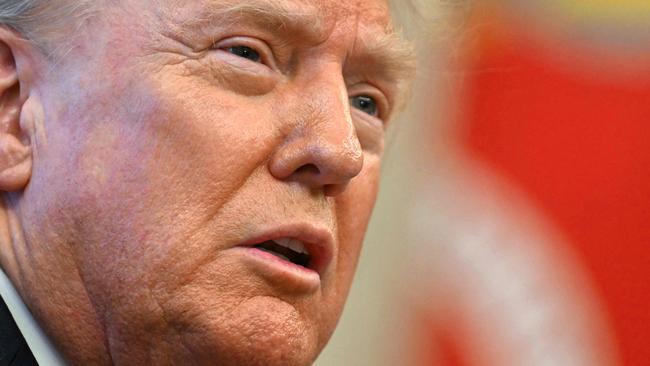
And at what cost? Friday’s incident in the Oval Office was hailed, by most elected Republicans, as an example of strong leadership from the President. Sure. And the Putin regime was delighted.
Across the rest of the world, however, Mr Trump and Mr Vance’s behaviour towards Mr Zelensky was widely panned.
So he has risked seriously degrading America’s reputation among its allies just to end up in almost the exact same place as before.
Europe interpreted the row with Mr Zelensky as further proof that Mr Trump is aligning the US with Russia, and against the democratic world. There have been days of fretting that his intention is to, in effect, abandon the decades-old NATO alliance.
Some of the major European countries, most striking Germany, have gone so far as to state publicly that the US is no longer a reliable ally.
This might result in something Mr Trump has long wanted: increased defence spending in Europe, allowing the US to spend less. So it serves one good purpose.
But it does so at the price of America’s isolation. A Europe that believes it can’t rely on the US is a Europe that will be less willing to help the US in the future. Mutual disrespect, and distrust, is building.
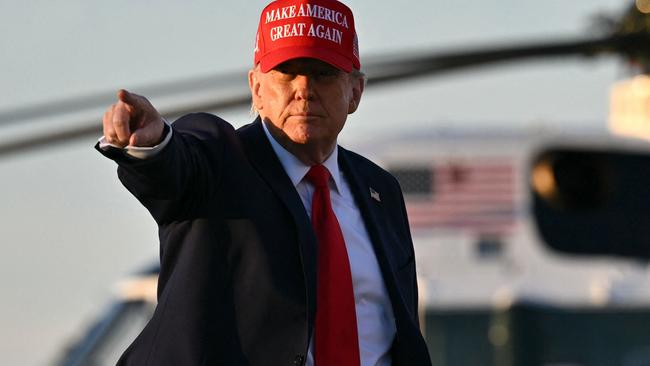
Speaking to Fox News yesterday, Mr Vance made that problem worse, arguing that the minerals deal would be a “better security guarantee” for Ukraine “than 20,000 troops from some random country that hasn’t fought a war in 30 or 40 years”.
(His logic was that giving the US an economic interest in Ukraine would protect it from future Russian aggression.)
The only European nations that have suggested putting troops in Ukraine are France and Britain, both of which have sent troops to fight and die in American-led wars repeatedly in recent decades.
Britain’s Conservative Shadow Defence Secretary, James Cartlidge, accused Mr Vance of “ignoring” the sacrifices of America’s allies, calling it “deeply disrespectful”.
“The disrespect shown by the new US Vice President to the sacrifices of our service personnel is unacceptable,” said another Conservative MP, Ben Obese-Jecty.
Mr Vance later protested that his remarks did not “even mention the UK or France”, saying both nations had “fought bravely alongside the US”. But as Mr Obese-Jecty said, “it’s difficult to see who he was talking about” if not those two countries.
Even before that controversy The Daily Mail, a right-wing British newspaper, had called for King Charles to rescind his invitation to Mr Trump for a prestigious state visit. In an editorial, the paper cited the President’s treatment of Mr Zelensky, and accused him of deceiving Prime Minister Keir Starmer the day before the White House blow-up.
“This country has given unstinting backing to the United States over and over again, often when it hurt us to do so. We took seriously America’s argument that liberty and the safety of Europe were at stake in Ukraine,” it wrote.
“Now, turning its entire foreign policy on a tiny dime, the US is voting with Russia and North Korea at the United Nations, and those who thought they were marching shoulder to shoulder in an important moral enterprise have been had for fools, defending a noble cause whose principal champion has deserted it with a sneer on his face.”
This is all very real damage to America’s standing in the world. Diplomatic capital built up over the better part of a century, since World War II, is being depleted. It’s unclear whether Mr Trump realises that, or even cares.
Twitter: @SamClench
Originally published as ‘That was fast’: Resumed talks for minerals deal between US and Ukraine framed as a concession by Volodymyr Zelensky


